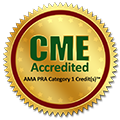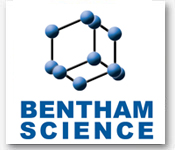Theme: Revolutionary Strategies in Diagnosis and Treatment of Heart Diseases
Heart Diseases 2016
The Global Summit on Heart Diseases is to be held at Chicago, USA during October 20-21, 2016 sorted out by ConferenceSeries Ltd will unite world-class educators, researchers and cardiologists to talk about techniques for ailment remediation for heart. Cardiology Conferences are intended to give different and ebb and flow training that will keep restorative experts side by side of the issues influencing the counteractive action, determination and treatment of cardiovascular sickness. The meeting will be composed around the topic "Revolutionary Strategies in Diagnosis and Treatment of Heart Diseases ".
Heart Diseases is the term given to heart issues brought about by contracted heart supply routes. At the point when courses are contracted, less blood and oxygen achieves the heart muscle. This is likewise called coronary supply route illness and coronary illness. This can eventually prompt heart assault. The field fuses restorative examination and treatment of characteristic heart blemishes, pathophysiology, coronary vein contamination, valvular coronary sickness and electrophysiology.
Accreditation Statement
This activity has been planned and implemented in accordance with the accreditation requirements and policies of the Accreditation Council for Continuing Medical Education (ACCME) through the joint providership of PeerPoint Medical Education Institute and Conference Series, LLC. PeerPoint Medical Education Institute is accredited by the ACCME to provide continuing medical education for physicians.
Designation Statement
PeerPoint Medical Education Institute designates the live format for this educational activity for AMA PRA Category 1 Credits™. Physicians should only claim credit commensurate with the extent of their participation in the activity.
Theme: Revolutionary Strategies in Diagnosis and Treatment of Heart Diseases
Scientific Sessions:
Track 1: Heart diseases
Heart disease is a condition that happens when the heart muscle is debilitated. In this condition, the left ventricle, which is the primary heart muscle, is generally extended and widened. This condition can be a consequence of a heart assault or coronary corridor sickness, a narrowing of the conduits. These limited supply routes keep blood from achieving bits of your heart. The debilitated heart muscle represses your heart's capacity to pump blood and can prompt heart disappointment. Side effects of IC incorporate shortness of breath, mid-section agony, and amazing weakness. On the off chance that you have IC side effects, you ought to look for restorative care quickly.
Related Conferences: Annual Conference on Atherosclerosis July 11-12, 2016 Philadelphia, USA; 14th Clinical & Experimental Cardiology Conference, November 14-16, 2016 Orlando, USA; 8th Cardiologists Annual Meeting, July 18-20 2016, Germany; 13th European Cardiology Congress, October 17-19, 2016 Rome, Italy; 15th World Cardiothoracic Meeting, December 5-6 2016, Philadelphia, USA; 9th Annual Meeting on Arrhythmia and Cardiac Surgery, July 14-15 2016, Australia ; ACC Annual Meeting 2016; Hypertension and Health Care, August 11-12, 2016 Toronto, Canada; 4th International Conference on Prehypertension, Hypertension & Cardio Metabolic Syndrome, March 03-06 2016, Italy; American Cardiology Congress 2016; The Pacific Northwest Cardiovascular Summit, October 03-04 2015, Oregon; European Cardiology Congress 2016; 3rd Annual International Conference on Cardiology & Cardiovascular Medicine Research, February 22-23 2016, Singapore; 3rd International 4 Corners of Cardiology Meeting, February 05-06 2016, Australia, American Cardiology Association 2016
Track 2: Ischemic Heart Disease
Ischemic Heart Disease, otherwise called Coronary Artery Disease, is a condition that influences the supply of blood to the heart. The veins are limited or hindered because of the statement of cholesterol on their dividers. This diminishes the supply of oxygen and supplements to the heart muscles, which is vital for appropriate working of the heart. This may in the long run result in a part of the heart being all of a sudden denied of its blood supply prompting the demise of that territory of heart tissue, bringing about a heart assault.
Related Conferences: Annual Conference on Atherosclerosis July 11-12, 2016 Philadelphia, USA; 14th Clinical & Experimental Cardiology Conference, November 14-16, 2016 Orlando, USA; 8th Cardiologists Annual Meeting, July 18-20 2016, Germany; 13th European Cardiology Congress, October 17-19, 2016 Rome, Italy; 15th World Cardiothoracic Meeting, December 5-6 2016, Philadelphia, USA; 9th Annual Meeting on Arrhythmia and Cardiac Surgery, July 14-15 2016, Australia ; ACC Annual Meeting 2016; Hypertension and Health Care, August 11-12, 2016 Toronto, Canada; 4th International Conference on Prehypertension, Hypertension & Cardio Metabolic Syndrome, March 03-06 2016, Italy; American Cardiology Congress 2016; The Pacific Northwest Cardiovascular Summit, October 03-04 2015, Oregon; European Cardiology Congress 2016; 3rd Annual International Conference on Cardiology & Cardiovascular Medicine Research, February 22-23 2016, Singapore; 3rd International 4 Corners of Cardiology Meeting, February 05-06 2016, Australia, American Cardiology Association 2016
Track 3: Hypertensive Heart Disease
High blood pressure of unknown origin (primary hypertension) or caused by (secondary hypertension) certain specific diseases or infections, such as tumor in the adrenal glands, damage to or disease of the kidneys or their blood vessels. High blood pressure may overburden the heart and blood vessels and cause disease.
Related Conferences: Annual Conference on Atherosclerosis July 11-12, 2016 Philadelphia, USA; 14th Clinical & Experimental Cardiology Conference, November 14-16, 2016 Orlando, USA; 8th Cardiologists Annual Meeting, July 18-20 2016, Germany; 13th European Cardiology Congress, October 17-19, 2016 Rome, Italy; 15th World Cardiothoracic Meeting, December 5-6 2016, Philadelphia, USA; 9th Annual Meeting on Arrhythmia and Cardiac Surgery, July 14-15 2016, Australia ; ACC Annual Meeting 2016; Hypertension and Health Care, August 11-12, 2016 Toronto, Canada; 4th International Conference on Prehypertension, Hypertension & Cardio Metabolic Syndrome, March 03-06 2016, Italy; American Cardiology Congress 2016; The Pacific Northwest Cardiovascular Summit, October 03-04 2015, Oregon; European Cardiology Congress 2016; 3rd Annual International Conference on Cardiology & Cardiovascular Medicine Research, February 22-23 2016, Singapore; 3rd International 4 Corners of Cardiology Meeting, February 05-06 2016, Australia, American Cardiology Association 2016
Track 4: Diabetic Heart Disease
The term "diabetic heart disease" (DHD) refers to heart disease that develops in people who have diabetes. Compared with people who don't have diabetes, people who have diabetes: are at higher risk for heart disease, have additional causes of heart disease, may develop heart disease at a younger age and may have more severe heart disease. DHD may include coronary heart disease (CHD), heart failure, and diabetic cardiomyopathy .
Related Conferences Annual Conference on Atherosclerosis July 11-12, 2016 Philadelphia, USA; 14th Clinical & Experimental Cardiology Conference, November 14-16, 2016 Orlando, USA; 8th Cardiologists Annual Meeting, July 18-20 2016, Germany; 13th European Cardiology Congress, October 17-19, 2016 Rome, Italy; 15th World Cardiothoracic Meeting, December 5-6 2016, Philadelphia, USA; 9th Annual Meeting on Arrhythmia and Cardiac Surgery, July 14-15 2016, Australia ; ACC Annual Meeting 2016; Hypertension and Health Care, August 11-12, 2016 Toronto, Canada; 4th International Conference on Prehypertension, Hypertension & Cardio Metabolic Syndrome, March 03-06 2016, Italy; American Cardiology Congress 2016; The Pacific Northwest Cardiovascular Summit, October 03-04 2015, Oregon; European Cardiology Congress 2016; 3rd Annual International Conference on Cardiology & Cardiovascular Medicine Research, February 22-23 2016, Singapore; 3rd International 4 Corners of Cardiology Meeting, February 05-06 2016, Australia, American Cardiology Association 2016
Track 5: Heart Failure and Cardiomyopathies
Heart failure is a condition in which your heart can't pump enough blood to meet your body's needs. The term “heart failure” doesn't mean that your heart has stopped or is about to stop working. However, heart failure is a serious condition that requires medical care.If you have heart failure, you may tire easily and have to limit your activities. CHD can lead to heart failure by weakening the heart muscle over time.
Related Conferences: Annual Conference on Atherosclerosis July 11-12, 2016 Philadelphia, USA; 14th Clinical & Experimental Cardiology Conference, November 14-16, 2016 Orlando, USA; 8th Cardiologists Annual Meeting, July 18-20 2016, Germany; 13th European Cardiology Congress, October 17-19, 2016 Rome, Italy; 15th World Cardiothoracic Meeting, December 5-6 2016, Philadelphia, USA; 9th Annual Meeting on Arrhythmia and Cardiac Surgery, July 14-15 2016, Australia ; ACC Annual Meeting 2016; Hypertension and Health Care, August 11-12, 2016 Toronto, Canada; 4th International Conference on Prehypertension, Hypertension & Cardio Metabolic Syndrome, March 03-06 2016, Italy; American Cardiology Congress 2016; The Pacific Northwest Cardiovascular Summit, October 03-04 2015, Oregon; European Cardiology Congress 2016; 3rd Annual International Conference on Cardiology & Cardiovascular Medicine Research, February 22-23 2016, Singapore; 3rd International 4 Corners of Cardiology Meeting, February 05-06 2016, Australia, American Cardiology Association 2016
Track 6: Obesity and Cardiac diseases
Obesity is a major contributor to the prevalence of cardiovascular disease in the developed world, and same level of attention as other risk factors of coronary artery disease. It is a chronic metabolic disorder associated with cardiovascular disease and increased morbidity and mortality. It implicates a corresponding increase in the number of individuals afflicted with the metabolic syndrome, which defines the obese patient as being "at risk.", by modifying lipids, decreasing blood pressure, and decreasing levels of glycaemia, proinflammatory cytokines, and adhesion molecules, weight loss may prevent the progression of atherosclerosis or the occurrence of acute coronary syndrome events in the obese high-risk population.
Related Conferences Annual Conference on Atherosclerosis July 11-12, 2016 Philadelphia, USA; 14th Clinical & Experimental Cardiology Conference, November 14-16, 2016 Orlando, USA; 8th Cardiologists Annual Meeting, July 18-20 2016, Germany; 13th European Cardiology Congress, October 17-19, 2016 Rome, Italy; 15th World Cardiothoracic Meeting, December 5-6 2016, Philadelphia, USA; 9th Annual Meeting on Arrhythmia and Cardiac Surgery, July 14-15 2016, Australia ; ACC Annual Meeting 2016; Hypertension and Health Care, August 11-12, 2016 Toronto, Canada; 4th International Conference on Prehypertension, Hypertension & Cardio Metabolic Syndrome, March 03-06 2016, Italy; American Cardiology Congress 2016; The Pacific Northwest Cardiovascular Summit, October 03-04 2015, Oregon; European Cardiology Congress 2016; 3rd Annual International Conference on Cardiology & Cardiovascular Medicine Research, February 22-23 2016, Singapore; 3rd International 4 Corners of Cardiology Meeting, February 05-06 2016, Australia, American Cardiology Association 2016
Track 7: Cardiac Stroke
Cardiac strokes occur as a result of an obstruction within a blood vessel supplying blood to the brain. The underlying condition for this type of obstruction is the development of fatty deposits lining the vessel walls. This condition is called atherosclerosis. These fatty deposits can cause two types of obstruction: Cerebral thrombosis and Cerebral embolis.
Related Conferences: Annual Conference on Atherosclerosis July 11-12, 2016 Philadelphia, USA; 14th Clinical & Experimental Cardiology Conference, November 14-16, 2016 Orlando, USA; 8th Cardiologists Annual Meeting, July 18-20 2016, Germany; 13th European Cardiology Congress, October 17-19, 2016 Rome, Italy; 15th World Cardiothoracic Meeting, December 5-6 2016, Philadelphia, USA; 9th Annual Meeting on Arrhythmia and Cardiac Surgery, July 14-15 2016, Australia ; ACC Annual Meeting 2016; Hypertension and Health Care, August 11-12, 2016 Toronto, Canada; 4th International Conference on Prehypertension, Hypertension & Cardio Metabolic Syndrome, March 03-06 2016, Italy; American Cardiology Congress 2016; The Pacific Northwest Cardiovascular Summit, October 03-04 2015, Oregon; European Cardiology Congress 2016; 3rd Annual International Conference on Cardiology & Cardiovascular Medicine Research, February 22-23 2016, Singapore; 3rd International 4 Corners of Cardiology Meeting, February 05-06 2016, Australia, American Cardiology Association 2016
Track 8: Aneurysm
An aneurysm is an abnormal widening or ballooning of a part of an artery due to weakness in the wall of the blood vessel. It is not clear exactly what causes aneurysms. Some aneurysms are present at birth (congenital). Defects in some parts of the artery wall may be a cause. High blood pressure is thought to play a role in abdominal aortic aneurysms. Atherosclerotic disease (cholesterol buildup in arteries) may also lead to the formation of some aneurysms. Aneurysms can form in any section of the aorta, but they are most common in the belly area. They can also happen in the upper body. Thoracic aortic aneurysms are also known as ascending or descending aortic aneurysms.
Related Conferences: Annual Conference on Atherosclerosis July 11-12, 2016 Philadelphia, USA; 14th Clinical & Experimental Cardiology Conference, November 14-16, 2016 Orlando, USA; 8th Cardiologists Annual Meeting, July 18-20 2016, Germany; 13th European Cardiology Congress, October 17-19, 2016 Rome, Italy; 15th World Cardiothoracic Meeting, December 5-6 2016, Philadelphia, USA; 9th Annual Meeting on Arrhythmia and Cardiac Surgery, July 14-15 2016, Australia ; ACC Annual Meeting 2016; Hypertension and Health Care, August 11-12, 2016 Toronto, Canada; 4th International Conference on Prehypertension, Hypertension & Cardio Metabolic Syndrome, March 03-06 2016, Italy; American Cardiology Congress 2016; The Pacific Northwest Cardiovascular Summit, October 03-04 2015, Oregon; European Cardiology Congress 2016; 3rd Annual International Conference on Cardiology & Cardiovascular Medicine Research, February 22-23 2016, Singapore; 3rd International 4 Corners of Cardiology Meeting, February 05-06 2016, Australia, American Cardiology Association 2016
Track 9: Intracerebral Hemorrhage
Intracerebral hemorrhage occurs when a diseased blood vessel within the brain bursts, allowing blood to leak inside the brain. (The name means within the cerebrum or brain). The sudden increase in pressure within the brain can cause damage to the brain cells surrounding the blood. If the amount of blood increases rapidly, the sudden buildup in pressure can lead to unconsciousness or death. Intracerebral hemorrhage usually occurs in selected parts of the brain, including the basal ganglia, cerebellum, brain stem, or cortex. An intracerebral hemorrhage (ICH) account for only 15% of all strokes but it is one of the most disabling forms of stroke. Greater than one third of patients with intracerebral hemorrhage (ICH) will not survive and only twenty percent of patients will regain functional independence. This high rate of morbidity and mortality has prompted investigations for new medical and surgical therapies for intracerebral hemorrhage.
Related Conferences: Annual Conference on Atherosclerosis July 11-12, 2016 Philadelphia, USA; 14th Clinical & Experimental Cardiology Conference, November 14-16, 2016 Orlando, USA; 8th Cardiologists Annual Meeting, July 18-20 2016, Germany; 13th European Cardiology Congress, October 17-19, 2016 Rome, Italy; 15th World Cardiothoracic Meeting, December 5-6 2016, Philadelphia, USA; 9th Annual Meeting on Arrhythmia and Cardiac Surgery, July 14-15 2016, Australia ; ACC Annual Meeting 2016; Hypertension and Health Care, August 11-12, 2016 Toronto, Canada; 4th International Conference on Prehypertension, Hypertension & Cardio Metabolic Syndrome, March 03-06 2016, Italy; American Cardiology Congress 2016; The Pacific Northwest Cardiovascular Summit, October 03-04 2015, Oregon; European Cardiology Congress 2016; 3rd Annual International Conference on Cardiology & Cardiovascular Medicine Research, February 22-23 2016, Singapore; 3rd International 4 Corners of Cardiology Meeting, February 05-06 2016, Australia, American Cardiology Association 2016
Track 10: Cardiac arrhythmia
Cardiac arrhythmia is a problem with the rate or rhythm of your heartbeat. It means that your heart beats too quickly, too slowly, or with an irregular pattern. When the heart beats faster than normal, it is called tachycardia. When the heart beats too slowly, it is called bradycardia. The most common type of arrhythmia is atrial fibrillation, which causes an irregular and fast heartbeat. Many factors can affect your heart's rhythm, such as having had a heart attack, smoking, congenital heart defects, and stress.
Related Conferences: Annual Conference on Atherosclerosis July 11-12, 2016 Philadelphia, USA; 14th Clinical & Experimental Cardiology Conference, November 14-16, 2016 Orlando, USA; 8th Cardiologists Annual Meeting, July 18-20 2016, Germany; 13th European Cardiology Congress, October 17-19, 2016 Rome, Italy; 15th World Cardiothoracic Meeting, December 5-6 2016, Philadelphia, USA; 9th Annual Meeting on Arrhythmia and Cardiac Surgery, July 14-15 2016, Australia ; ACC Annual Meeting 2016; Hypertension and Health Care, August 11-12, 2016 Toronto, Canada; 4th International Conference on Prehypertension, Hypertension & Cardio Metabolic Syndrome, March 03-06 2016, Italy; American Cardiology Congress 2016; The Pacific Northwest Cardiovascular Summit, October 03-04 2015, Oregon; European Cardiology Congress 2016; 3rd Annual International Conference on Cardiology & Cardiovascular Medicine Research, February 22-23 2016, Singapore; 3rd International 4 Corners of Cardiology Meeting, February 05-06 2016, Australia, American Cardiology Association 2016
Track 11: Cardiac Surgery
A diagnosis of heart disease often begins with a primary care physician, who refers his or her patient to a cardiologist. If the patient has a condition that requires surgery, that is called as cardiac surgery. Before, during, and after heart surgery, patients remain under the care of their cardiologist.
Related Conferences: Annual Conference on Atherosclerosis July 11-12, 2016 Philadelphia, USA; 14th Clinical & Experimental Cardiology Conference, November 14-16, 2016 Orlando, USA; 8th Cardiologists Annual Meeting, July 18-20 2016, Germany; 13th European Cardiology Congress, October 17-19, 2016 Rome, Italy; 15th World Cardiothoracic Meeting, December 5-6 2016, Philadelphia, USA; 9th Annual Meeting on Arrhythmia and Cardiac Surgery, July 14-15 2016, Australia ; ACC Annual Meeting 2016; Hypertension and Health Care, August 11-12, 2016 Toronto, Canada; 4th International Conference on Prehypertension, Hypertension & Cardio Metabolic Syndrome, March 03-06 2016, Italy; American Cardiology Congress 2016; The Pacific Northwest Cardiovascular Summit, October 03-04 2015, Oregon; European Cardiology Congress 2016; 3rd Annual International Conference on Cardiology & Cardiovascular Medicine Research, February 22-23 2016, Singapore; 3rd International 4 Corners of Cardiology Meeting, February 05-06 2016, Australia, American Cardiology Association 2016 India.
Track 12: Clinical trials in Cardiology
Clinical research efforts in acute coronary syndromes provide a useful model for examining large, multicenter effectiveness trials in an acute, life-threatening disease. Robert Califf, Vice Chancellor for Clinical Research and Director of the Duke Translational Medicine Institute, reflected on the notable successes of the ACS field in translating basic science into early clinical trials, and then into definitive trials that evaluate outcomes related to key clinical questions.
Related Conferences: Annual Conference on Atherosclerosis July 11-12, 2016 Philadelphia, USA; 14th Clinical & Experimental Cardiology Conference, November 14-16, 2016 Orlando, USA; 8th Cardiologists Annual Meeting, July 18-20 2016, Germany; 13th European Cardiology Congress, October 17-19, 2016 Rome, Italy; 15th World Cardiothoracic Meeting, December 5-6 2016, Philadelphia, USA; 9th Annual Meeting on Arrhythmia and Cardiac Surgery, July 14-15 2016, Australia ; ACC Annual Meeting 2016; Hypertension and Health Care, August 11-12, 2016 Toronto, Canada; 4th International Conference on Prehypertension, Hypertension & Cardio Metabolic Syndrome, March 03-06 2016, Italy; American Cardiology Congress 2016; The Pacific Northwest Cardiovascular Summit, October 03-04 2015, Oregon; European Cardiology Congress 2016; 3rd Annual International Conference on Cardiology & Cardiovascular Medicine Research, February 22-23 2016, Singapore; 3rd International 4 Corners of Cardiology Meeting, February 05-06 2016, Australia, American Cardiology Association 2016
Track 13: Heart Diseases: Diagnosis and Treatment
Heart disease symptoms may differ for men and women, according to the Mayo Clinic. Men are more likely to have chest pain, while women are more likely to have shortness of breath, nausea and extreme fatigue. A number of factors play a role in heart disease risk. Some include family history and age (if your relatives have heart disease or you are older, your risk goes up), but others you have more control over. Much of the advice to avoid heart disease is the same health advice given for other conditions: stop smoking, exercise and eat a diet that is low in cholesterol and salt — cholesterol being the source of blockage and salt contributing to higher blood pressure. Other things to avoid in the diet include saturated fats, which typically come from animal fats and oils, and trans fats, which occur in vegetable oil, but have largely been removed from the marketplace because of consumer demand.
Related Conferences: Annual Conference on Atherosclerosis July 11-12, 2016 Philadelphia, USA; 14th Clinical & Experimental Cardiology Conference, November 14-16, 2016 Orlando, USA; 8th Cardiologists Annual Meeting, July 18-20 2016, Germany; 13th European Cardiology Congress, October 17-19, 2016 Rome, Italy; 15th World Cardiothoracic Meeting, December 5-6 2016, Philadelphia, USA; 9th Annual Meeting on Arrhythmia and Cardiac Surgery, July 14-15 2016, Australia ; ACC Annual Meeting 2016; Hypertension and Health Care, August 11-12, 2016 Toronto, Canada; 4th International Conference on Prehypertension, Hypertension & Cardio Metabolic Syndrome, March 03-06 2016, Italy; American Cardiology Congress 2016; The Pacific Northwest Cardiovascular Summit, October 03-04 2015, Oregon; European Cardiology Congress 2016; 3rd Annual International Conference on Cardiology & Cardiovascular Medicine Research, February 22-23 2016, Singapore; 3rd International 4 Corners of Cardiology Meeting, February 05-06 2016, Australia, American Cardiology Association 2016
Track 14: Case reports in Heart Diseases
Cardiology is a branch of medicine dealing with disorders of the heart. Heart is an important muscular organ in humans and other animals, pumps blood through the blood vessels of the circulatory system. The drugs that are used to treat other disorders in body, show a great impact on heart causing various side effects. Hence case reports on cardiac arrest and diseases have a great value and help in advancing and development of treatment strategies.
Related conferences: Annual Conference on Atherosclerosis July 11-12, 2016 Philadelphia, USA; 14th Clinical & Experimental Cardiology Conference, November 14-16, 2016 Orlando, USA; 8th Cardiologists Annual Meeting, July 18-20 2016, Germany; 13th European Cardiology Congress, October 17-19, 2016 Rome, Italy; 15th World Cardiothoracic Meeting, December 5-6 2016, Philadelphia, USA; 9th Annual Meeting on Arrhythmia and Cardiac Surgery, July 14-15 2016, Australia ; ACC Annual Meeting 2016; Hypertension and Health Care, August 11-12, 2016 Toronto, Canada; 4th International Conference on Prehypertension, Hypertension & Cardio Metabolic Syndrome, March 03-06 2016, Italy; American Cardiology Congress 2016; The Pacific Northwest Cardiovascular Summit, October 03-04 2015, Oregon; European Cardiology Congress 2016; 3rd Annual International Conference on Cardiology & Cardiovascular Medicine Research, February 22-23 2016, Singapore; 3rd International 4 Corners of Cardiology Meeting, February 05-06 2016, Australia, American Cardiology Association 2016
Track 15: Pediatric cardiologist
A pediatric cardiologist is a pediatrician who has received extensive training in diagnosing and treating children's cardiac problems. Evaluation and treatment may begin with the fetus since heart problems can now be detected before birth.
When a pediatrician suspects a heart problem, he or she may ask a pediatric cardiologist to investigate further.Common causes for a referral to the pediatric cardiologist include heart murmurs, chest pain, dizzy spell(s) or palpitations. Initial evaluations may result in the patient and his/her parents being reassured that there is nothing to worry about.
A pediatric cardiologist is trained to perform and interpret procedures such as electrocardiograms, echocardiograms and exercise tests. In cases of more significant heart disease, a pediatric cardiologist may perform a cardiac catheterization in order to diagnose or treat the child's heart problem. If the child needs to be hospitalized, the pediatric cardiologist and pediatric cardiac surgeon work together in planning cardiac surgery, when needed. However, in all cases the pediatric cardiologist is there, every step of the way.
Related conferences: Annual Conference on Atherosclerosis July 11-12, 2016 Philadelphia, USA; 14th Clinical & Experimental Cardiology Conference, November 14-16, 2016 Orlando, USA; 8th Cardiologists Annual Meeting, July 18-20 2016, Germany; 13th European Cardiology Congress, October 17-19, 2016 Rome, Italy; 15th World Cardiothoracic Meeting, December 5-6 2016, Philadelphia, USA; 9th Annual Meeting on Arrhythmia and Cardiac Surgery, July 14-15 2016, Australia ; ACC Annual Meeting 2016; Hypertension and Health Care, August 11-12, 2016 Toronto, Canada; 4th International Conference on Prehypertension, Hypertension & Cardio Metabolic Syndrome, March 03-06 2016, Italy; American Cardiology Congress 2016; The Pacific Northwest Cardiovascular Summit, October 03-04 2015, Oregon; European Cardiology Congress 2016; 3rd Annual International Conference on Cardiology & Cardiovascular Medicine Research, February 22-23 2016, Singapore; 3rd International 4 Corners of Cardiology Meeting, February 05-06 2016, Australia, American Cardiology Association 2016
Track 16: Entrepreneurs Investment Meet
A global platform aimed to connect Entrepreneurs, Proposers and the Investors worldwide. It's intended to create and facilitate the most optimized and viable business meeting place for engaging people in constructive discussions, evaluation and execution of promising business ideas. Through Ischemic Heart Diseases 2016 an investor could be able to find out the highest potential investment opportunities in the field of Cardiology, which provide good return on investment. For entrepreneurs, this would be an ideal place to find out suitable investors and partners to start or expand their business.
Related conferences: Annual Conference on Atherosclerosis July 11-12, 2016 Philadelphia, USA; 14th Clinical & Experimental Cardiology Conference, November 14-16, 2016 Orlando, USA; 8th Cardiologists Annual Meeting, July 18-20 2016, Germany; 13th European Cardiology Congress, October 17-19, 2016 Rome, Italy; 15th World Cardiothoracic Meeting, December 5-6 2016, Philadelphia, USA; 9th Annual Meeting on Arrhythmia and Cardiac Surgery, July 14-15 2016, Australia ; ACC Annual Meeting 2016; Hypertension and Health Care, August 11-12, 2016 Toronto, Canada; 4th International Conference on Prehypertension, Hypertension & Cardio Metabolic Syndrome, March 03-06 2016, Italy; American Cardiology Congress 2016; The Pacific Northwest Cardiovascular Summit, October 03-04 2015, Oregon; European Cardiology Congress 2016; 3rd Annual International Conference on Cardiology & Cardiovascular Medicine Research, February 22-23 2016, Singapore; 3rd International 4 Corners of Cardiology Meeting, February 05-06 2016, Australia, American Cardiology Association 2016
Track 17: Advances in Cardiology Education
The new and fast-growing area of cardiovascular medicine that aims to apply molecular biology techniques for the mechanistic investigation, diagnosis, prevention and treatment of cardiovascular disease. As an emerging discipline, it has changed conceptual thinking of cardiovascular development, disease etiology and pathophysiology Advances in Cardiovascular Imaging reviews clinically relevant information regarding heart failure and arrhythmias as well as ischemic, structural and valvular heart disease.
Related conferences: 8th Gobal Cardiologists Annual Meeting July 18-20, 2016 Berlin, Germany; 7th World Cardiothoracic Meeting March 29-30, 2016 Atlanta, USA; Annual Conference on Atherosclerosis July 11-12, 2016 Philadelphia, USA; International conference on Cardio Vascular Medicine October 10-11, 2016 Manchester, UK; International Conference on Angiology December 08-10, 2016 San Antonio, USA; World Cardiology Conference October 10-12, 2016 Manchester, UK; Echo Cardiography Conference June 06-07, 2016 London, UK; 8th Annual The Heart Beat of Cardiology December 10-12, 2015, Chicago, USA; World Congress of Cardiology & Cardiovascular Health June 04-07, 2016, Mexico City, Mexico; PreHT 2016 - The 4th International Conference on Prehypertension, Hypertension & Cardio Metabolic Syndrome, Venice, Italy; WCC 2016 - World Congress of Cardiology & Cardiovascular Health, Mexico City, Mexico
Track 18: Cardiologist Training and Education
The eventual fate of cardiology rests in the hands and psyches of cardiovascular learners and partnership programs. Instruction and preparing is quickly changing, and the worldview of "see one, do one, show one" has now been supplanted by formal appraisals of competency, the joining of practice change and frameworks based practice, and an attention on obligation hours. To stay aware of the growing information and science in cardiovascular medication, the cardiology group needs to see new instructive activities and plan pathways to instruct, coach, and teach learners to wind up capable cardiovascular pros.
Related conferences: 8th Gobal Cardiologists Annual Meeting July 18-20, 2016 Berlin, Germany; 7th World Cardiothoracic Meeting March 29-30, 2016 Atlanta, USA; Annual Conference on Atherosclerosis July 11-12, 2016 Philadelphia, USA; International conference on Cardio Vascular Medicine October 10-11, 2016 Manchester, UK; International Conference on Angiology December 08-10, 2016 San Antonio, USA; World Cardiology Conference October 10-12, 2016 Manchester, UK; Echo Cardiography Conference June 06-07, 2016 London, UK; 8th Annual The Heart Beat of Cardiology December 10-12, 2015, Chicago, USA; World Congress of Cardiology & Cardiovascular Health June 04-07, 2016, Mexico City, Mexico; PreHT 2016 - The 4th International Conference on Prehypertension, Hypertension & Cardio Metabolic Syndrome, Venice, Italy; WCC 2016 - World Congress of Cardiology & Cardiovascular Health, Mexico City, Mexico
Conference Series LLC series invites you to attend the Global Summit on Heart Diseases to be held at Chicago, Illinois, USA during October 20-21, 2016 organized by Conference Series LLC series will bring together world-class professors, scientists and cardiologists to discuss strategies for disease remediation for heart in this cardiology conference.
Global Summit on Heart Diseases conference is designed to provide diverse and current education that will keep medical professionals abreast of the issues affecting the prevention, diagnosis and treatment of Heart diseases.
Conference Series LLC Organizes 1000+ Global events every year across the globe with support from 1000+ more Scientific societies and Publishes 500 Open access journals which contains over 50000 eminent personalities, reputed scientists as editorial board members.
The Heart Diseases 2016 will be organized around the theme "Revolutionary Strategies in Diagnosis and Treatment of Heart Diseases".
Accreditation Statement
This activity has been planned and implemented in accordance with the accreditation requirements and policies of the Accreditation Council for Continuing Medical Education (ACCME) through the joint providership of PeerPoint Medical Education Institute and Conference Series, LLC. PeerPoint Medical Education Institute is accredited by the ACCME to provide continuing medical education for physicians.
Designation Statement
PeerPoint Medical Education Institute designates the live format for this educational activity for AMA PRA Category 1 Credits™. Physicians should only claim credit commensurate with the extent of their participation in the activity.
Why to attend???
With members from around the world focused on learning about cardiothoracic and its advances; this is your best opportunity to reach the largest assemblage of participants from the cardiology & Cardiothoracic community. Conduct presentations, distribute information, meet with current and potential scientists, make a splash with new drug developments, and receive name recognition at this 2-day event. World-renowned speakers, the most recent techniques, developments, and the newest updates in Cardiothoracic are hallmarks of this conference.
Target Audience:
Cardiology Students, Scientists
Heart Disease Researchers
Cardiology Fellows
Neuropharmacology Faculty
Medical Colleges
Cardiology Associations and Societies
Business Entrepreneurs
Training Institutes
Manufacturing Medical Devices Companies
Heart Diseases 2016
Theme: Revolutionary Strategies in Diagnosis and Treatment of Heart Diseases
Summary:
Heart Disease is a condition that affects the supply of blood to the heart. The blood vessels are narrowed or blocked due to the deposition of cholesterol on their walls. Ischemia is a condition in which the blood flow (and thus oxygen) is restricted or reduced in a part of the body. Cardiac ischemia is the name for decreased blood flow and oxygen to the heart muscle. Heart Diseases is the term given to heart problems caused by narrowed heart arteries. When arteries are narrowed, less blood and oxygen reaches the heart muscle. This can ultimately lead to heart attack. Ischemia often causes chest pain or discomfort known as angina pectoris.
Importance & Scope:
The importance of coronary heart disease risk factors may differ between individuals and Community and by sex and age. Unfortunately coronary heart disease is still the leading cause of death, which means there must be no let-up in our attempts to eliminate this disease. The importance of risk factors in individuals and the community were evaluated as relative- and population-attributable risks. Heart disease is the leading cause of death for people of most racial/ethnic groups in the United States, including African Americans, Hispanics and Whites. For Asian Americans or Pacific Islanders and American Indians or Alaska Natives, heart disease is second only to cancer.
Why Chicago:
Heart disease is responsible for 40% of all U.S. deaths, about 750,000 annually. The major causes of heart disease, in descending order, are IHD, CHD, HTN heart disease, valvular HD, NIHD, and congenital HD. IHD is responsible for 80-90% of deaths due to cardiac causes.
The University of Chicago Medicine is offering innovative treatment options for people who suffer from chronic angina--a common, sometimes disabling, symptom of coronary artery disease. Angina is recurring chest pain or discomfort caused by reduced blood flow to the heart. University of Chicago cardiologists have formed a unique, multidisciplinary program specifically designed to help people who have chronic angina that cannot be relieved by traditional treatment methods. The University of Chicago Chronic Angina Program brings together specialists from cardiology, anesthesiology (pain management), and cardiac surgery to provide focused and innovative ways to treat angina. These physician-scientists are also conducting research into new and better ways to treat chronic angina.
Members Associated with Heart Diseases:
- There are 63 Cardiologists Specialists found in Chicago.
- There are 2000 Cardiologists specialists in USA
- There are a total of 27,076 cardiologists in the United States
http://heartdiseases.conferenceseries.com/upload-images/ischemicheartdiseases2016-79429.jpg
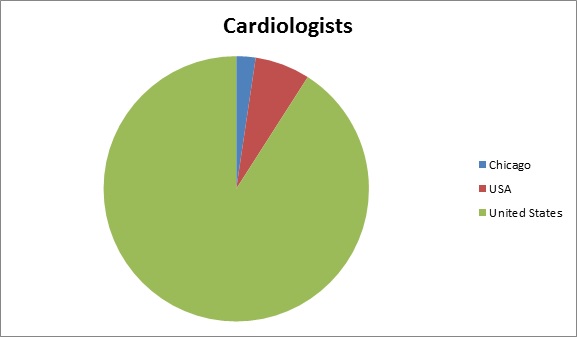
-
Hospitals Associated with Heart Diseases:
Chicago Hospitals:
- Northwestern Memorial Hospital
- Rush University Medical Centre
- University of Chicago Medicine
- Advocate Christ Medical Centre
- Loyola University Medical Center
- University of Illinois Hospital & Health Sciences System
- North Shore Evanston Hospital
- Central DuPage Hospital
- Advocate Lutheran General Hospital
- Alexian Brothers Medical Centre
- Presence St. Joseph Medical Center
- Advocate Illinois Masonic Medical Center
USA Hospitals:
- Johns Hopkins Hospital in Baltimore
- Massachusetts General Hospital in Boston
- Brigham and Women's Hospital in Boston
- University of Pittsburgh Medical Center in Pennsylvania
- UCSF Medical Center in San Francisco
- Cedars-Sinai Medical Center, Los Angeles, CA
- St Francis Hospital, Roslyn, New York, NY
- BaylorScott & White Hospital
- Emory University Hospital Midtown
- Lankenau Medical Center
- Kettering Medical Center
- JFK Medical Center
- Mount Auburn Hospital
- St. Mark's Hospital
Globe
- Cleveland Clinic
- Mayo Clinic
- New York-Presbyterian University Hospital of Columbia and Cornell
- Duke University Hospital
- Brigham and Women's Hospital
- Massachusetts General Hospital
- Cedars-Sinai Medical Center
- St. Francis Hospital
- Mount Sinai Hospital
- Full Scorecard Hospitals of the University of Pennsylvania-Penn Presbyterian
- Gleneagles Hospital, Singapore
- Shouldice Hospital
- Bumrungad International Hospital
- Barcelona Centre Medic
- Bangkok Hospital Medical Center
- Anadolu Medical Center
- Galichia Heart Hospital
http://heartdiseases.conferenceseries.com/upload-images/ischemicheartdiseases2016-49467.jpg
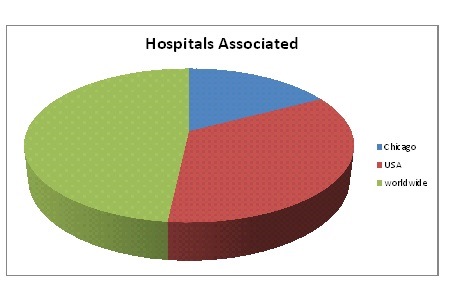
-
Societies Associated with Heart Diseases:
Chicago:
- Guide to the Chicago Heart Association
- Congenital Heart Surgeons' Society
- American Heart Association
- Heart Disease Health Center
- Hypertrophic Cardiomyopathy Association
- The Sudden Arrhythmia Death Syndromes Foundation (SADS)
- Heart Rhythm Society
- The Society of Thoracic Surgeons
- The Cardiothoracic Surgery Network
USA:
- American Association of Heart Failure Nurses
- American Society of Hypertension
- British Cardiac Society
- California Society for Cardiac Rehabilitation
- Congenital Heart Disease
- Heart Failure Society of America
- Alliance of Cardiovascular Professionals
- Society of Geriatric Cardiology
- International Society for Heart Research (ISHR)
Worldwide:
- The American Heart Association
- Heart Failure Society of America
- Society of Invasive Cardiovascular Professionals
- American Association of Heart Failure Nurses
- Association of American Medical Colleges
- American Medical Association
- American Society for Artificial Internal Organs
- American Society of Extra-Corporeal Technology
- American Society of Transplant Surgeons
- Association for Academic Surgery
- Congenital Heart Surgeons' Society
- CTSNet
- Federation of State Medical Boards of the United States
- Heart Failure Society of America
- Heart Valve Society of America
- Perfusion Program Directors' Council
- Society of Cardiac Surgeons
- Society for Vascular Surgery
- Society of University Surgeons
- Student Doctor Network Forums
Industries Associated with Heart Diseases:
Chicago:
- Clinical Design Group Inc
- Northshore Cardiology Consultants: Sroubek Otakar
- St Jude Medical
- Northwestern Cardiology
- University of Chicago Med Center
- Mercy Heart & Vascular Center
- Associates-Internal Medicine
- Cardiac Arrhythmia Center Sc
- Dev Medical Associates
- Accellent
- Argon Medical Devices Inc
Worldwide
- Cerevast Therapeutics
- Paragon Medical
- Procyrion
- Apaxis Medical
- Paragon Medical
- Biotronik
- Angel Medical Systems
- Topera Medical
- Lombard Medical Technologies Plc
- AtriCure, Inc.
- Sorin S.p.A.
- SurModics, Inc.
- Cook Medical Incorporated
- Genzyme Corporation
- GE Healthcare
- Abiomed, Inc.
- Osiris Therapeutics, Inc.
- Boston Scientific Corporation
- CryoLife, Inc.
- Philips Healthcare
- Uscom Ltd.
- Heart Tronics, Inc. (Inactive)
- Fleming Medical Limited
- Smiths Medical
- F. Hoffmann-La Roche Ltd.
- Cintas Corporation
- Thermo Fisher Scientific Inc.
- DURECT Corporation
- Elekta AB
- Alpha Pro Tech, Ltd.
- Becton, Dickinson and Company
- Mettler-Toledo International Inc
- Norda ASA
- Medical Information Technology, Inc.
- Dornier MedTech GmbH
- Cardinal Health, Inc.
- Tata Consultancy Services Limited
- SSL International Plc
Universities Associated with Cardiology Research:
Chicago:
- The University of Chicago Medicine
- Loyola Medicine
- Rush University Medical Centre
- Midwest Heart Specialists
- The Ohio State University
- Northwestern University Feinberg School of Medicine
- Advocate Christ Medical Centre
- Hektoen Institute of Medicine
- NorthShore University Health System
USA:
- University of Pennsylvania in Philadelphia, PA
- Cornell University
- University of Alabama-Birmingham
- Stanford University
- University of California, Los Angeles (UCLA)
- University of Michigan
- University of Rochester
- University of Texas Southwestern Medical Center
- University of Washington
- Yale University
Worldwide
- Emory University
- Harvard University
- Northwestern University
- University of Alabama-Birmingham
- University of California-Los Angeles
- University of Iowa
- University of Texas Southwestern Medical Center
- University of Washington
- Vanderbilt University
- Yale University
- Cornell University
- University of Rochester
- University of Pennsylvania
- Harvard University
- Northwestern University
- University of Iowa
- University of Texas Southwestern Medical Center
- University of Washington
- Vanderbilt University
http://heartdiseases.conferenceseries.com/upload-images/ischemicheartdiseases2016-91061.jpg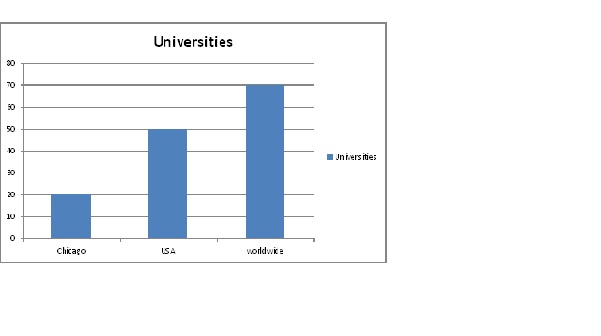
-
Market Value on Heart Diseases:
The global HD drugs market to grow at a CAGR of 3.61% during 2014-2019. The report covers the present scenario and the growth prospects of the global HD drugs market for the period 2015-2019. To calculate the market size, we consider the revenue generated from the sales of various branded therapies and generics, along with the drugs used as off-label for the treatment of HD.
In fact, CVD has been the leading cause of death in the United States for the past 100 years, except for 1918. While CVD age-adjusted death rates are reportedly declining in the United States, they are increasing in many developing countries. These developing countries and emerging market economies are succumbing to the epidemiologic transition that afflicted the United States (CVD-related mortality), posing a major challenge to these regions as they undergo social and economic development as emerging market economies. About 15.4 million Americans aged 20 years or older have CHD (7.9% of American men, 5.1% of American women). Asymptomatic disease is even more prevalent. By the year 2020, CHD is estimated to become the leading cause of death and disability worldwide.
Market Growth of Heart Diseases:The global Heart Disease drugs market is to grow at a CAGR of 3.61% during 2014-2019, according to a report from Research and Markets. The report covers the present scenario and the growth prospects of the global Heart Diseases drugs market for the period 2015-2019. To calculate the market size, we consider the revenue generated from the sales of various branded therapies and generics, along with the drugs used as off-label for the treatment of Heart Diseases. Further, the report states that the availability of effective surgical treatments and the use of catheter based interventions pose a challenge to the growth of market. The need for specific therapeutics at the later stages of the disease leads to the increased reliance on stents and surgeries. The global market for Cardiovascular Disease (CVD) — comprised of Heart Failure (HF), Myocardial The global market for Cardiovascular Disease (CVD) — comprised of Heart Failure (HF), Myocardial Infarction and Acute Coronary Syndrome (ACS) — is expected to grow at a moderate rate, from $13.7 billion in 2012 to $18.2 billion by 2019, at a Compound Annual Growth Rate (CAGR) of 4.1%, forecasts business intelligence provider.
Products manufactured by the industry related Heart Diseases:
- AstraZeneca
- Bayer
- Eli Lilly
- Novartis
- Pfizer
- Sanofi
- Actelion
- Amgen
- Baxter
- Boehringer Ingelheim
- Bristol-Myers Squibb
- Daiichi-Sankyo
- Gilead Sciences
- GlaxoSmithKline
- Human Stem Cells Institute
- Janssen Pharmaceuticals
- Juventas Therapeutics
- Nuo Therapeutics
- Ono Pharmaceutical
- Pharmahungary Group
- The Medicines Company
- United Therapeutics
Fund Allotment to Heart Diseases:
World Wide
National Institutes of Health provide funding for all the Heart Diseases linked organizations for the research work. The funded amount for individual organizations based on the state can be seen in the below link:
In the year 2011 $ 1,236 were given as a fund by by the National Institutes of Health for the research and development in the field of Heart Diseases. Later the fund was estimated in the year 2015 is $1,228 and in 2016 is $1,258.
Statistics of Physicians, Researchers and Academicians working on Heart Diseases:
There are about 27,076 physicians, 16,500 researchers and 10,350 academicians approximately in USA
http://heartdiseases.conferenceseries.com/upload-images/ischemicheartdiseases2016-25415.jpg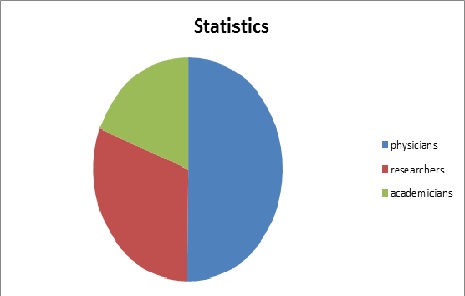
Conference Highlights
- Clinical trials in Cardiology
- Heart diseases
- Case reports in Heart Diseases
- Aneurysm
- Intracerebral Hemorrhage
- Entrepreneurs Investment Meet
- Pediatric cardiologist
- Advances in Cardiology Education
- Cardiologist Training and Education
- Ischemic Heart Disease
- Hypertensive Heart Disease
- Diabetic Heart Disease
- Heart Failure and Cardiomyopathies
- Obesity and Cardiac diseases
- Cardiac Stroke
- Cardiac Arrhythmias
- Cardiac Surgery
- Heart Diseases: Diagnosis and Treatment
- Cardiac Nursing
- Regeneration of Heart
- Cardiac Imaging
- Cardiac Tumors
- Neurocardiology
To share your views and research, please click here to register for the Conference.
To Collaborate Scientific Professionals around the World
| Conference Date | October 20-21, 2016 | ||
| Sponsors & Exhibitors |
|
||
| Speaker Opportunity Closed | Day 1 | Day 2 | |
| Poster Opportunity Closed | Click Here to View | ||
Useful Links
Special Issues
All accepted abstracts will be published in respective Our International Journals.
- Journal of Cardiovascular Diseases & Diagnosis
- Cardiovascular Pharmacology: Open Access
- Journal of Clinical & Experimental Cardiology
Abstracts will be provided with Digital Object Identifier by

